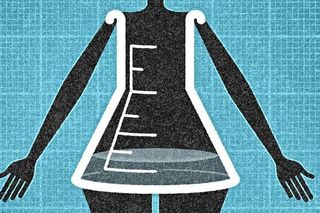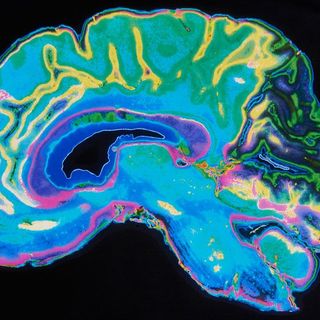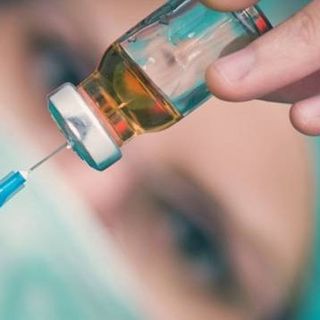
Menopause Clinics Treat More Than Symptoms, Focus on Preventative Care
The decline in estrogen that prompts menopause can also kick off serious health problems.

Sunita Sharma knew she was experiencing the onset of menopause — irregular periods, low-self esteem, a decreased interest in having sex, and lethargy. “I didn’t know how to deal with it because, as a theatre actress, I’d always been confident, very active,” says the Bangalore-based 51-year-old, “but there was something [now] that was constantly pulling me down.” What she didn’t know was that she could seek help.
“Menopause can take a toll on women’s physical and mental health,” says
Dr Bandita Sinha, gynecologist with Mumbai’s Hiranandani Hospital, which offers menopause treatments. “So far, menopause has been looked at as a natural process whose effects will subside over time, but it is important to know that menopause can trigger many changes in a woman’s body, both physically and mentally, the effects of which can last a lifetime.”
The hormonal changes that underlie menopause are increasingly understood to affect women’s health far beyond reproductive capability. It is this fact that has prompted a handful of menopause clinics to open across India, bringing together specialists across medical disciplines to relieve women’s symptoms, prevent the development of associated conditions, and generally transition their medical care to focus on new health risks that come with age.
*
Menopause, explained simply, is when periods end because ovaries stop producing estrogen and progesterone — essential hormones needed for reproduction. A woman is officially considered menopausal 12 months after her last known period, which for an Indian woman typically occurs in her late 40s.
Related on The Swaddle:
The Change Before Menopause
Menopause is best known for its temporary changes — a disturbed sleep cycle, mood swings or lower energy levels. While many women do experience these, the caricature of the emotionally volatile and sweaty menopausal woman obscures the fact that the drop in estrogen — a hormone not only responsible for reproduction, but also involved in promoting growth and repair of neurons, absorbing nutrients and regulating metabolism — can contribute to more serious and chronic problems such as osteoporosis, mental health disorders, diabetes, cardiovascular diseases, cognitive decline and Alzheimer’s disease.
Menopause may not be the only or the direct cause of these conditions, says Dr Hasmukh Rawat, senior interventional cardiologist at Mumbai’s Fortis Hospital. It’s more about increased vulnerability.“Menopause doesn’t cause heart attacks,” he says. Yet, “as compared to men, the incidence of ischemic heart disease is lesser among pre-menopausal women — but post-menopause incidences are equal. The difference is that among pre-menopausal women, estrogen provides protection as a muscle relaxant and improves heart function.”
Related on The Swaddle:
What You Need to Know About Heart Disease and Heart Attacks in Women
Most women are aware of the physical manifestations of menopause — vaginal dryness, disturbed sleep, mood swings, difficulty focusing, weight gain, slowed metabolism, irregular periods, hot flashes, night sweats, hair loss and loss of fullness of the breasts. But few are aware that the underlying hormonal changes kick off increased potential for larger health problems.
“Most women and their families don’t know about these changes and will only look at immediate changes such as mood swings, irritability or depression and go to psychiatrists, when they should actually be coming to gynecologists first,” says Dr Sinha.
*
There’s much more to menopause than just the fact that a woman doesn’t menstruate anymore, says Dr Aparna Jha, a senior obstetrician and gynecologist at Apollo Cradle in Bangalore, which has a menopause clinic. “Depending on their symptoms and their severity, these treatments are individualized and highly recommended as they are carefully planned keeping a holistic approach in mind,” she says.
Related on The Swaddle:
When Menopause Masks Ovarian Cancer, Vital Treatment Gets Delayed
Some, like Sharma, might require only a basic plan, such as making lifestyle changes that include more or different exercise, improved nutrition and vitamin supplements to minimize calcium loss (and thus osteoporosis), which is associated with lower estrogen levels, and cholesterol management to prevent cardiovascular disease. Other menopausal women, however, may require Hormone Replacement Therapy, Vaginal Estrogen Treatment or mental health medication. And still other women who might benefit from Hormone Replacement Therapy can’t avail of it because of a family history of breast cancer, to which HRT has been linked.Women with diabetes already may face complications from menopause, or women may develop metabolic problems for the first time.
This wide span of highly individualized post-menopausal needs and possibilities requires more than gynecologists. For example, at Sharma’s menopause clinic, WeWomen, in Bangalore, urologists, endocrinologists, opthalmologists, and orthopedics are also on staff.
Related on The Swaddle:
Your Menstrual Cycle Keeps Changing Throughout Your Lifetime
In fact, one important aspect of care at menopause clinics is cancer screening. While menopause does not cause cancer, both are related to aging. Menopause clinics will prescribe Pap smear tests, sonography and mammography on a regular basis to screen for cancer, says Dr Sinha.
It’s an unusually holistic approach to health care, one that recognizes that while medical specialization might be required for study purposes, the human body is rarely so one-note. All physiological changes are both cause and effect, and are seldom ‘just a phase.’
“We’ve all been told that menopause is a phase and it’s not something that can be treated, but it’s important to understand that treatments will not treat menopause. [They] will manage the symptoms and prevent chronic conditions that could develop as you age,” says Dr Jha.
Anubhuti Matta is an associate editor with The Swaddle. When not at work, she's busy pursuing kathak, reading books on and by women in the Middle East or making dresses out of Indian prints.
Related


Women’s Brains Run 3 Years Younger Than Real Age; Men’s Run 2 Years Older
